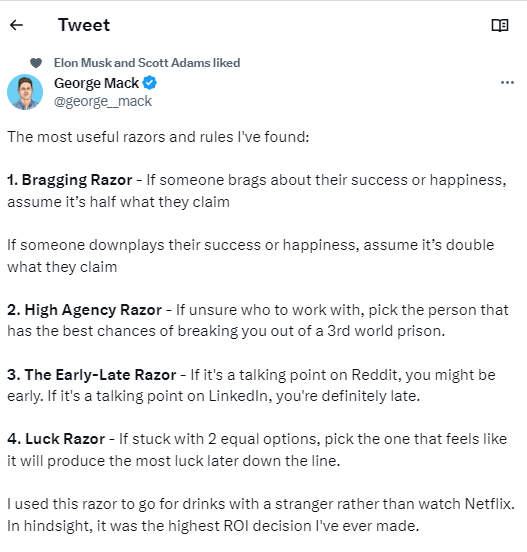How the Investigating COVID Origins was Impeded by Deep Corruption
Amazingly disturbing story about a coordinated resistance to the investigation of COVID's origins. This is also the story about how corruption exploits money and power to hide in the shadows.
Deep Dive on Immigration Featuring Attorney Javad Khazaeli
If you are frustrated with the national "debate" on immigration, I invite you to list to this episode of "The Jury is Out," a podcast I co-host along with John Simon and Tim Cronin of the Simon Law Firm. Our guest for Episode 427 is Javad Khazaeli, a St. Louis attorney who has practiced in the field of Immigration law for years. He offers many stories about our massively dysfunctional immigration system, some of them jaw dropping. I guarantee that you won't be disappointed, no matter what you think you know about immigration. This is Part I of a two-part series, the second episode on immigration will drop soon.
Bonus: Watch and listen to Ronald Reagan and George Bush debate Immigration in a 1980 Presidential Debate. If you think you already know the kinds of things they will say, you are probably very wrong.
If you enjoyed this episode of "The Jury is Out," feel free to subscribe and listen to our show wherever you get your podcasts.
Three Cheers for the Pessimist’s Archive!
If you want to feel a bit happier about all of the sad things out there, check out the "Pessimists Archive." Things have always been shitty.
For example, you will learn that people were panicked about the fact that the development of new machines would cause mass unemployment. This was back in the 1920's, when those new machines included the horseless carriage.
And I learned how typewriters were once seen as a big sexual turn-off:
A love letter written with a typewriter today would be considered a romantic gesture, however in 1906 they were called the most “cold-blooded, mechanical, unromantic production imaginable" by one writer.
About Countries that Irreversibly Lose Their Way
I increasingly think of Chesterson's Fence:
Chesterton's Fence is a principle that says change should not be made until the reasoning behind the current state of affairs is understood. It says the rash move, upon coming across a fence, would be to tear it down without understanding why it was put up.
Peter McCullough, M.D. was censored during COVID and he has since been proven correct on many of his positions. Yet he didn't become bitter (at least that I could see in public). Rather, he keep trying to communicate where we, as a society, have lost our way. McCullough keeps trying to shed light on the problems he detects, but I detect an ominous undertone in his writings, a sense that we are sustaining too much damage as a society and that we might no longer have the tools, as a society, to repair the damage. I increasingly detect that same feelings in myself. In a recent article, McCullough writes:
Once the belief in a country and institution has been lost, it is very difficult to rejuvenate it. This is the principle reason why most conservative commentators often come off as sounding staid and uninspiring to the young. It’s as though the spirit has departed from the body that no amount of edifying rhetoric can reanimate. As Hegel pointed out in the preface to his Elements of the Philosophy of Law:That feeling that we might have crossed the event horizon has increasingly been expressed by people who inspire me, including (now deceased) George Carlin and Jonathan Haidt.Philosophy always arrives too late to teach the world how it should be. As the thought of the world, philosophy appears only in the period after reality has been achieved and has completed its formative process. This lesson, also taught by history, is that only in the late stage of reality does the ideal appear in opposition to this reality, grasping it in the form of an intellectual construct.
When philosophy paints its gray in gray, then a form of life has grown old, and cannot be rejuvenated, but only recognized; the Owl of Minerva takes flight only as the dusk begins to fall.
Excerpt from The Australian --
"'I am now very pessimistic,' Haidt said. 'I think there is a very good chance American democracy will fail, that in the next 30 years we will have a catastrophic failure of our democracy.'"
We might have fucked things up too much to ever fix them. George Carlin gets the last word here.:
- Go to the previous page
- 1
- …
- 6
- 7
- 8
- 9
- 10
- 11
- 12
- …
- 63
- Go to the next page

